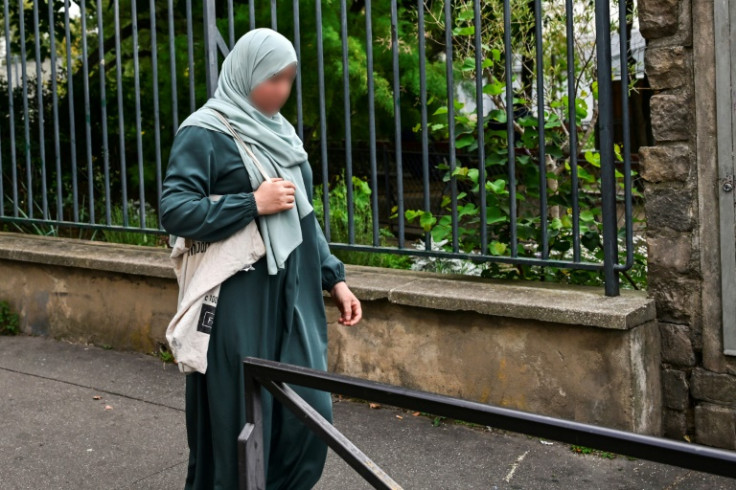France move to ban abaya robes from state schools
Despite arguments explaining that the abaya is not a religious symbol, France has banned the full-length robes being worn by girls in school.

On Sunday 27th August, the French Education Minister Gabriel Attal announced that the government have supported his move to ban children from wearing the full-length abaya robe in state-run schools.
The new rule has been met with much controversy, with much of the French population arguing that the abaya is not a religious symbol.
Since 2004, France has repeatedly abolished any strict religious symbols in state schools, including the Jewish kippah, the Catholic "oversized" cross and any traditional religious garments.
The ban on religious symbols is part of France's upholding of its strict brand of secularism, also known as "laicite".
Speaking to TF1 TV, Education Minister Gabriel Attal said: "For me, laïcité, when put in the framework of a school, is very clear: you walk into a classroom, you shouldn't be able to identify the pupils' religion just by looking at them."
"Schools of the Republic are built on very strong values and principles, especially laïcité... I have decided that the abaya could no longer be worn in schools," he declared.
The Education Minister ignored those who contested the ban, as he continued to express his beliefs, saying: "Secularism means the freedom to emancipate oneself through school."
He further describes the abaya as "a religious gesture, aimed at testing the resistance of the republic toward the secular sanctuary that school must be".
The following day, Monday 19th August, the conservative party in France applauded the government's decision.
France will ban muslim girls from wearing the abaya in schools.
— • (@Alhamdhulillaah) August 28, 2023
The hijab is already banned from being worn in schools. pic.twitter.com/QFtNoxkplb
Jean-Luc Melenchon, a left-wing MP who placed third in France's 2022 presidential election, described his "sadness to see the return to school politically polarised by a new absurd entirely artificial religious war about a woman's dress".
Jean-Luc Melenchon also touched light on a question that many in the nation might be thinking. He asked: "When will there be civil peace and true secularism that unites instead of exasperating?"
In 2018, the French government confirmed that they would ban women from wearing burqas, niqabs and other full-face coverings that reflect one's religion.
The decision to ban religious items of clothing that are worn by the minority in France was inherently met with controversy and an outbreak of protests. But the debate, regarding whether the abaya is a religious symbol continues.
Criticising the new law that criminalises women if they choose to wear the abaya, the President of the ELF-Muslim Students of France, Loubna Regui said: "The abaya is known not to be a religious garment. It's actually a cultural one although the government doesn't seem to care about this information and still bans it, which is interesting because, alongside Afghanistan and Iran, France is the only other country to legislate what women can and cannot wear."
The abaya is a loose, full-length garment that is worn by several women in parts of North Africa, the Arabian Peninsula, and most of the Middle East. The abaya covers the whole body, except the feet and hands.
In agreement with the President of the ELF-Muslim Students of France, France's Council of Muslim Worship explained: "You only have to travel through Muslim-majority countries to realise that the citizens of these countries, of all faiths, are indistinguishable based on the clothes they wear."
Clementine Autain, a left-wing lawmaker for the France Insoumise party said that the new law was another "characteristic of an obsessional rejection of Muslims".
Eric Ciotti, the Head of the Conservative Les Republicains party, said that the move to ban the abaya did not come soon enough.
Also in full support, the right-wing Head of the small Reconquest Party that is opposed to immigrants, Eric Zemmour, posted on X (formerly Twitter): "Banning abayas is a good first step if it is applied."
Despite much contestation, the Education Minister concluded: "During my meetings with (the school heads) this summer, I sensed their need for a clear rule on the national level on the issue of abayas, so the rule is now here."
© Copyright IBTimes 2025. All rights reserved.






















